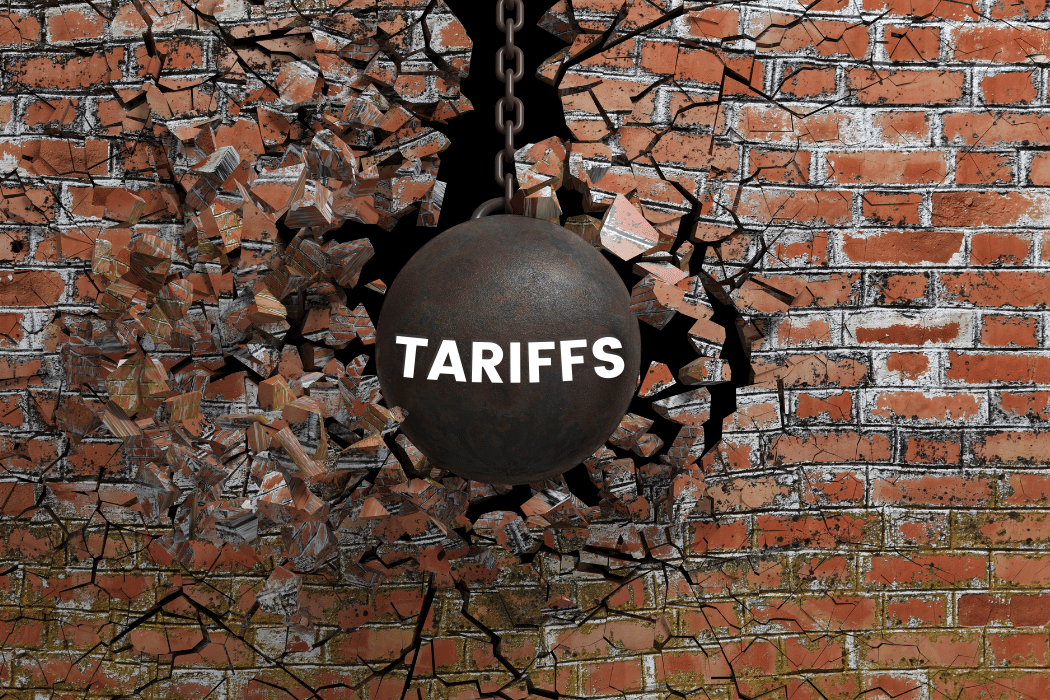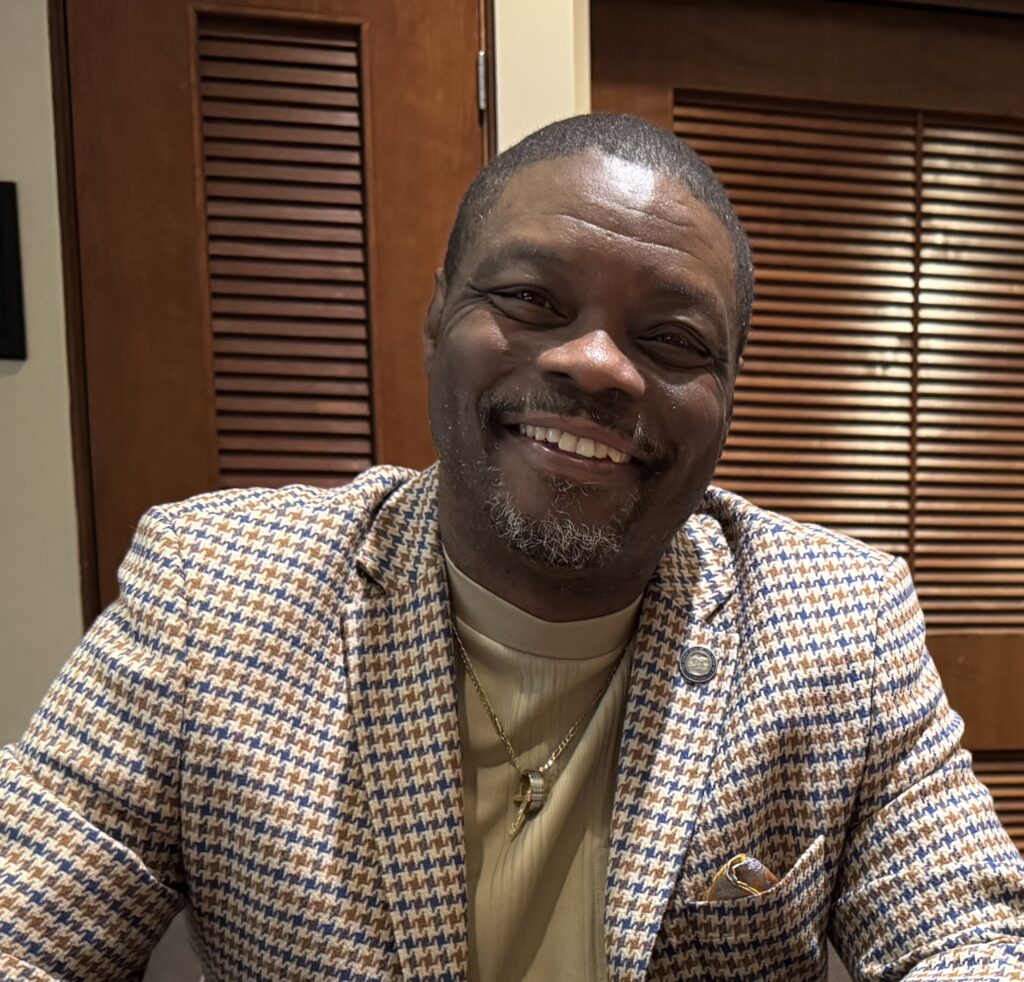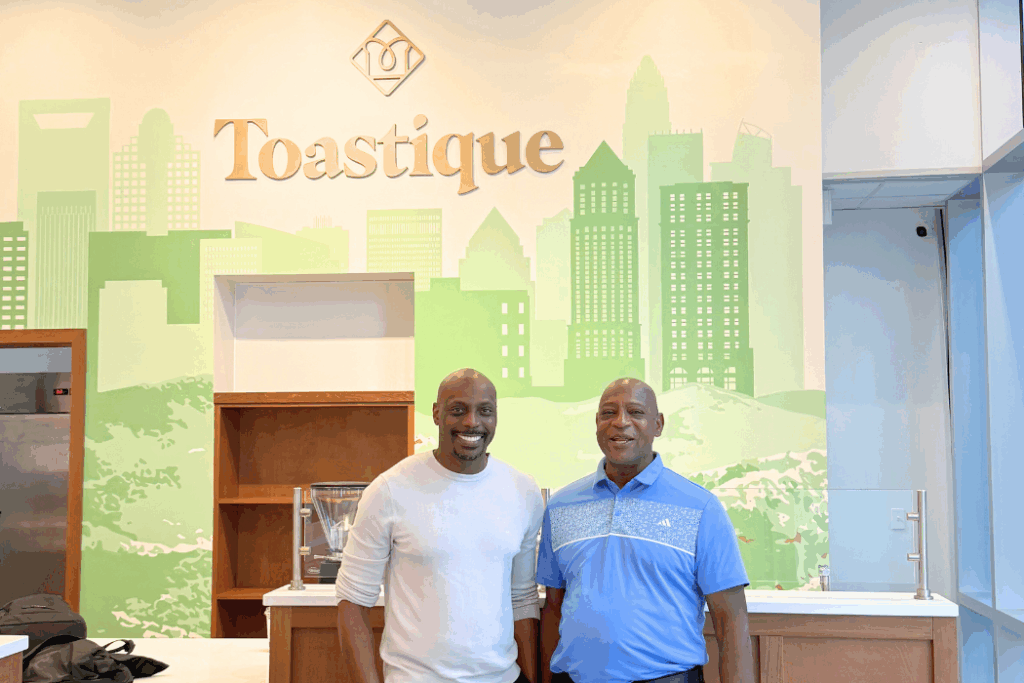
How New Tariffs and Economic Policies Are Impacting America’s Entrepreneurs
In an exclusive interview with Shaundell Newsome, co-chair of Small Business for America’s Future, reveals the real-world consequences of recent economic policies on small business owners across America.
This is the first in a series of articles examining the impact of the current administration’s economic policies on small businesses and diverse businesses.
In an era of economic uncertainty marked by shifting trade policies and governmental restructuring, small business owners find themselves navigating increasingly choppy waters. A recent survey of small business owners in the Small Business for America’s Future network, found that 63 percent believe the American economy is on the wrong track. The survey also revealed that the impact of tariffs is a particular concern, with 78 percent of respondents expecting increased costs for imported materials and 71 percent anticipating they will need to pass these higher costs on to consumers.
Shaundell Newsome, founder of Sumnu Marketing and co-chair of Small Business for Americas Future, offers a candid perspective on how recent administrative changes and tariff implementations are affecting small businesses nationwide.
The Weight of Uncertainty in Today’s Economy

“Nothing really surprised me,” Newsome states when asked about recent the survey findings showing economic anxiety among small business owners. Having operated his marketing company since 2006, he’s weathered various economic storms but notes a particular concern with the current administration’s approach to government streamlining and focus on eliminating what they term “fraud, waste, and abuse.”
The survey respondents’ sentiments aren’t isolated to small businesses, as recent Wall Street developments suggest similar concerns among larger corporations.
“It’s causing a lot of trepidation. It’s causing a lot of caution, and you do not want a cautious economy,” Newsome explains. This caution directly translates to delayed business decisions, stalled growth plans, and reduced economic activity.
Tariffs: A Double-Edged Sword for Small Enterprises
Perhaps the most significant source of anxiety stems from the inconsistent approach to tariff policies. The survey indicates that 66 percent of small business owners believe current tariffs are mostly hurting the U.S. economy rather than helping it.
“Small businesses across the political spectrum express a lot of concern about the on-again, off-again tariff announcements,” Newsome says. “‘I’m going to do this. No, I’m not going to do that.’ That’s too much uncertainty for us.”
Unlike large corporations that can absorb increased costs or spread them across multiple revenue streams, small businesses often lack the financial flexibility to withstand sudden economic shifts.
The Ripple Effect: From Supply Chain to Main Street
When asked which businesses are being hit the hardest, Newsome references fellow entrepreneur and co-chair Walt Rowen, who operates a multi-generation company providing custom glassware for hotels. Rowan sources materials from Canada and Mexico—countries directly affected by new tariff policies.
“Now when you start slamming them with tariffs, those costs are going to hit Walt’s business,” Newsome explains. “And it’s going to force him to make decisions—one, pass it on to the consumer, or try to make cuts to keep up with the rising costs in products.”
The consequences extend beyond manufacturing into service-based businesses and local establishments. Newsome mentions how local grocery stores are already experiencing price increases in produce, partly due to immigration policies affecting agricultural labor.
Planning in a State of Limbo
Perhaps most concerning is how economic uncertainty is affecting business planning. According to the survey, 51 percent of small businesses are putting decisions on hold until trade policies become more certain.
Newsome’s own company has delayed construction of a new office space designed to foster youth entrepreneurship with training rooms and podcast studios. “We put delays on increasing our staff or any growth opportunities,” he admits. “Because if you don’t know if you’re going to be able to grow and expand, then you’re going to hold back your cards because you don’t want to fail.”
This cautious approach contradicts the common perception of entrepreneurs as reckless risk-takers. “As much as people think we’re risk-takers, we calculate our risk,” Newsome clarifies. “We don’t just run out and just go for it like the old Wild, Wild West. We definitely calculate based on these factors.”
Small Business: The Backbone of Local Economies
Newsome emphasizes the critical role small businesses play in sustaining local economies. Unlike large corporations that might invest profits in space exploration or overseas ventures, small business owners typically reinvest in their communities.
“The impact on local communities is immediate from small business owners,” he explains. “Me, my wife, my daughter, and my niece who are all partners in the business, what are we going to do once we get our money? We’re going to go right to the local dry cleaner, the local grocery store, the local eatery.”
This local reinvestment extends beyond consumer spending to community investment, such as sponsoring youth sports teams or educational opportunities. “We just did a sponsorship for some kids to go on an HBCU [Historically Black College or University] tour,” Newsome mentions, highlighting how small businesses contribute to social infrastructure.
What Small Businesses Need from Washington
When asked what small businesses require from policymakers, Newsome’s answer is clear: “Stability, in one word, stability.”
He emphasizes that small business owners aren’t primarily concerned with partisan politics. “We don’t care if it’s Republican, Democrat, Independent,” he says. “What we care about is ‘Are you all on the same page? And you’re going to make sure that we have some stability?’”
Beyond stability, Newsome calls for “realistic policy solutions” developed with input from small business owners. He advocates for affordable healthcare solutions, a tax code that creates a level playing field, and policies that recognize small businesses collectively employ approximately half of the American workforce.
“You can’t screw us on one end and then give them [large corporations] a break on the other end,” he argues. “That doesn’t make sense.”
Finding Resilience in Adversity
Despite these challenges, Newsome finds strength in historical perspective. “Our superpower is our resiliency,” he tells other business owners, particularly diverse entrepreneurs. “Our superpower is the fact that we have been in these positions before.”
Drawing from personal experience growing up in 1980s New York amid drug epidemics, violence, and the AIDS crisis, Newsome puts current economic uncertainties in perspective. “It [doesn’t] get any scarier than that,” he reflects.
He also finds motivation in the struggles of previous generations who faced even greater obstacles with fewer resources. “My grandfather grew up in the Jim Crow South, and he didn’t even have the ability to go to Washington, D.C. like I do four times a year or go to Carson City and jump on a plane and go argue with these folks.”
A Message to Lawmakers
If given the opportunity to address policymakers directly, Newsome’s message would be simple: “Listen to the people because the government is about the people, and the people are small businesses, veterans, whoever those people are, listen.”
He expresses frustration with what he perceives as top-down decision-making without adequate consultation with those most affected. “Right now, what I see is everybody’s making decisions without asking us questions,” he observes. “They’re not asking us. They’re just dictating to us what they feel would work.”
Newsome reminds lawmakers of the fundamental relationship between government and citizens: “We hired them, it’s not the other way around.”
Looking Forward: Navigating Uncertain Waters
As small businesses continue to navigate economic uncertainty, the resilience and adaptability that have long characterized American entrepreneurship remain essential. However, Newsome’s insights suggest that unnecessary policy volatility creates artificial obstacles to growth and innovation.
The current economic landscape presents a paradox: while policymakers often celebrate small businesses as engines of economic growth and job creation, policy implementation sometimes fails to reflect this appreciation. For America’s small business community to thrive, Newsome advocates for greater policy consistency, meaningful consultation, and an economic framework that recognizes their unique challenges and contributions.
In the meantime, entrepreneurs like Newsome continue to adapt, drawing on historical resilience while advocating for policies that create stable conditions for growth. As he proudly wore traditional African dashikis to Capitol Hill during Black History Month, Newsome’s message was clear: “I’m glad I’m getting those looks because you need to know I’m still here.”












